Sunshine with an average of 26°C, the Ionian Sea just three minutes away by foot, and almost every evening a firework display on the beach. How could one make better use of these sceneries than by playing role-playing games with 28 other nerds from all over Europe?
Pen-and-paper role-playing games and nerd culture are no longer a fringe phenomenon, and so there are communities everywhere dedicated to this hobby and the sense of community that comes with it. One such community is Dragon Legion, a non-profit organization founded in Germany. “It all began as a group of friends who thought it was cool to organize role-playing games together,” says Rasmus “Ras” Pechuel, co-founder and president of Dragon Legion. They now have members and events in 18 European countries, most recently on the Greek island of Zakynthos.
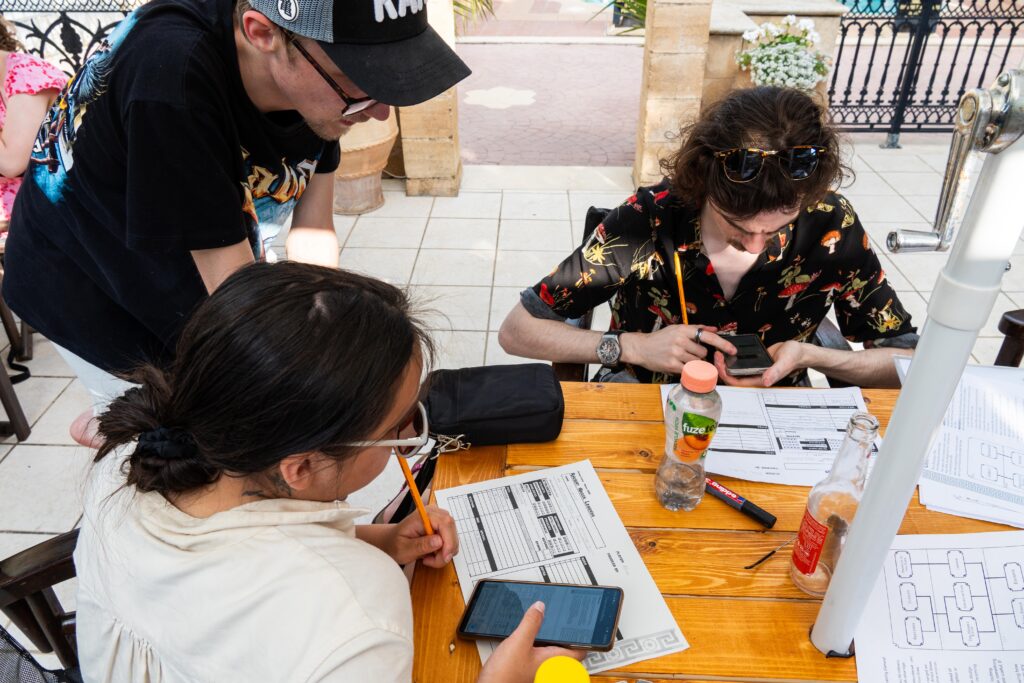
Role-playing for Exchange
Receiving a message that you can apply for one of two spots for a Europe-wide event where almost all costs are covered can understandably make one sceptical. However, in this case, it wasn’t an alleged prince from the other side of the world, but rather the aforementioned Dragon Legion. They regularly organize events to bring together young people from various European countries and to motivate them to exchange through a system that requires cooperation, communication, creativity, and more: through role-playing games. They receive financial support through an Erasmus grant. This allows them to relieve the participants of the financial burden and enable inter-European travel.
“Of course, we connect people across borders, but beneath the surface of such an event, there is much more,” say Ras and Ogge. The latter volunteered at Dragon Legion for a year, traveling from Sweden to Germany. In order not to make the players focus on being as communicative and creative as possible, but to let them feel free and relaxed, these hidden effects are rarely addressed. The events are conducted entirely in English; inevitably, language skills are trained. During the game, players must solve problems together and may also face dilemmas. Without naming it, intercultural values are compared, and compromises are found to make joint decisions that also have consequences for the rest of the game.
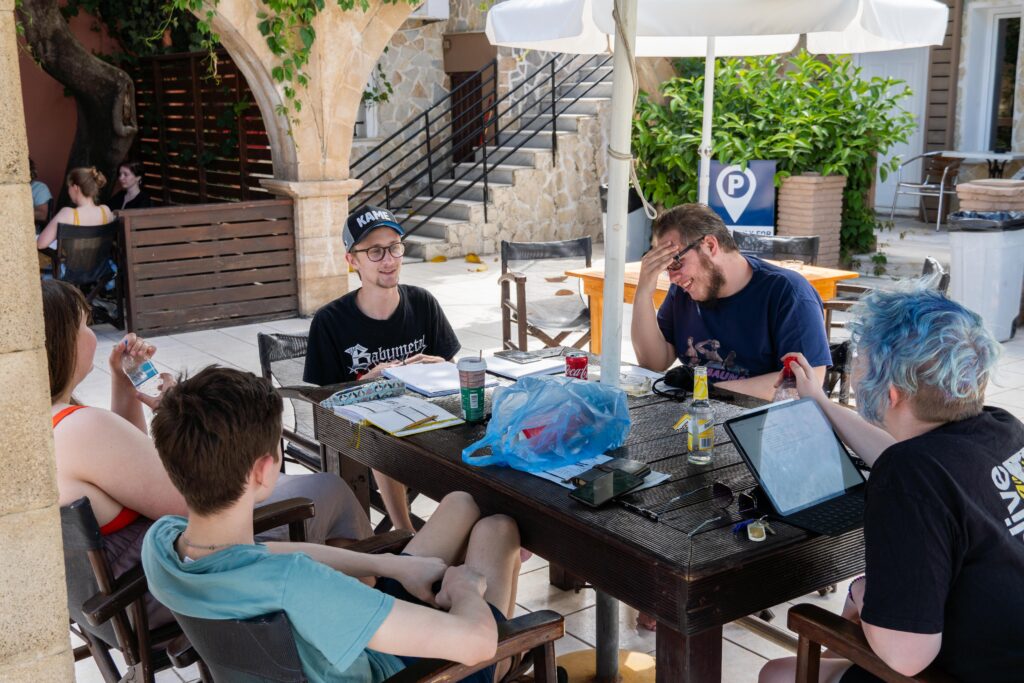
For the Player Event: Ancient Greece, participants travelled to the Greek island of Zakynthos by plane, car, or ferry. After checking into the hotel rooms, they first had to get used to the new situation — new roommates, unfamiliar languages, and a climate that particularly affected the mucous membranes of the Northern Europeans. The organizers made sure to mix nationalities as well as possible in the room assignments, so that cliques which only speak in their native language and unintentionally exclude others would not form.
“During a typical youth event, there is a workshop, and you talk about a specific topic, right? And it’s always about representing your country,” Ras remarks, “but that only promotes stereotypes again.” As he states, as a person, you cannot represent a country, only your own experiences. This works much better and more sustainably when you’re not fixated on having to represent a specific theme.
Even outside of the game, those present develop an interest in each other. Conversations arise about life situations, public transportation, and politics in the other person’s home country. Who would have thought that an Icelandic is also waiting for the end of the aging parties in the government, even if they can only laugh about the German internet connection.
Welcome to the Bronze Age
After getting to know each other, the games were opened. After all, this is a so-called Player Event – the players are supposed to play the role-playing system “Runestones” developed by Dragon Legion in a previously laid out scenario. As Ogge explains, it’s designed so that you can create your character and start playing within ten minutes. Additionally, unlike many other role-playing systems, it doesn’t involve dice that you would have to roll across a table; you can play it on the go. “Especially [at events] in Iceland, when we take people to glaciers or lava rivers, it can give them a completely different impression of the scenario they’re playing in,” describes Ras.
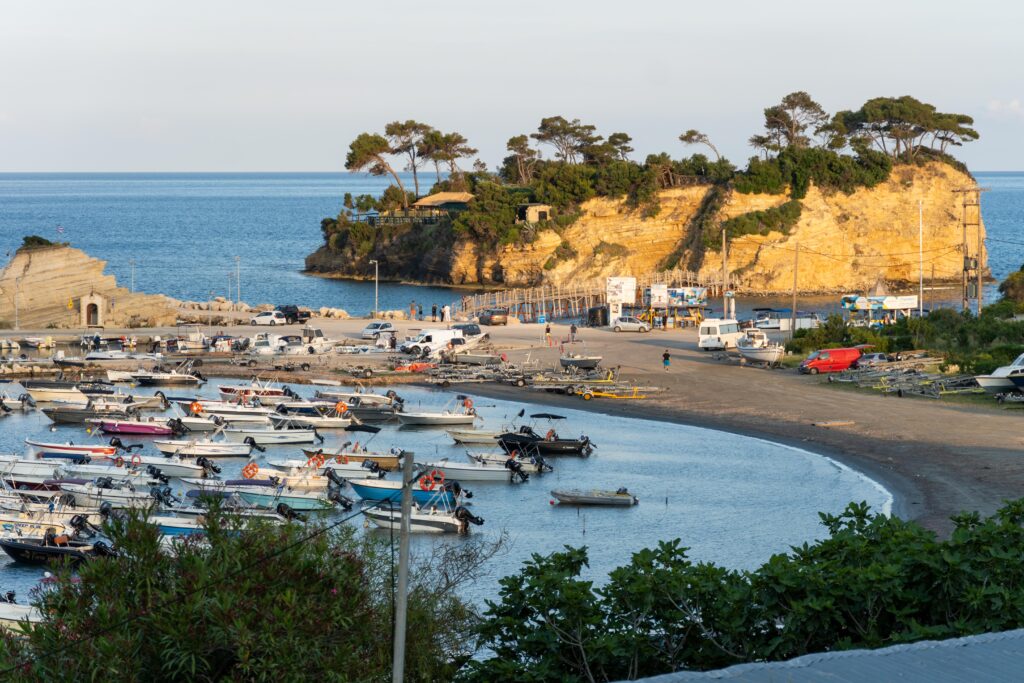
The stories told during the events are always tailored to the location. In this case, the players found themselves in Bronze Age Greece. As champions chosen by the gods, their task was to collect the most artifacts imbued with the power of the Titans. Four groups, each under the wing of a different god or goddess, played in parallel. Each game master, referred to by Dragon Legion as a Game Director, represents different locations in Greece where artifacts can be hidden. Thus, the actions of one group can have consequences for the next. For example, Poseidon’s champions retrieved an artifact from Charybdis’ maw and hid a decoy. Unfortunately, Artemis’ protégés fell for it. Players whose characters died during the adventure were not eliminated from the game. Hades brought them from the underworld into his own team.
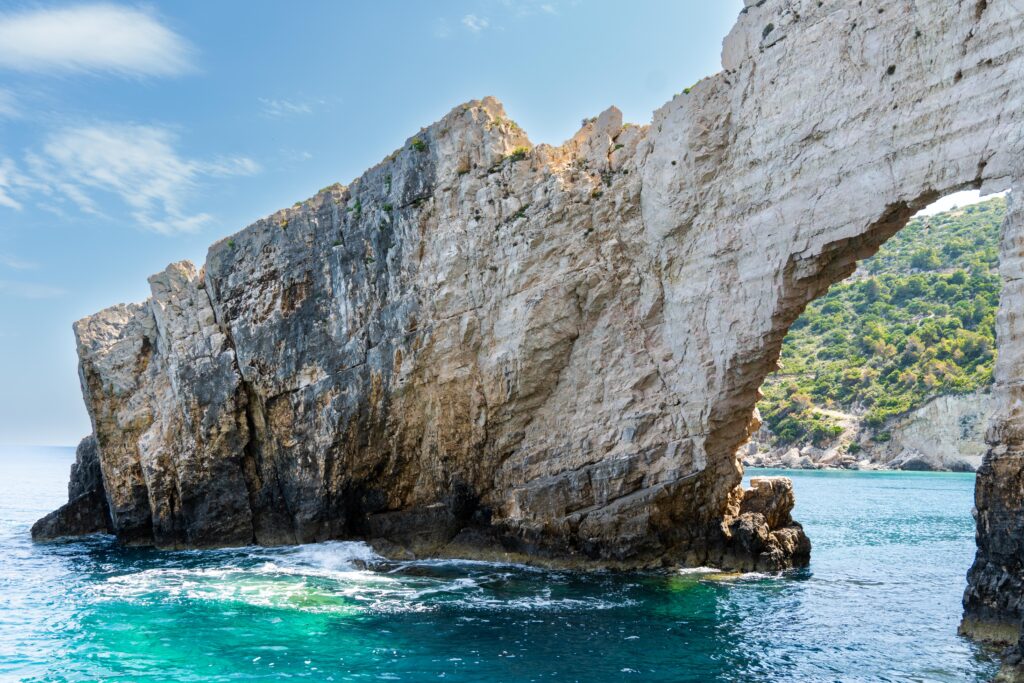
Everyone is just playing their role
Role-playing and fantasy are often criticized by outsiders as mere escapism, a way to avoid real-world problems. Is this accusation justified? Ras is convinced of the opposite: “We are all very conditioned by our society. […] Your opinion is so strongly shaped by the press, the people around you, and in many cases, it would do us good to get away from the political burden [of the real world] and to consider problems and difficulties as a human being. In role-playing, you are someone else. You are a character who has just been conceived. […] In problems where there is no right or wrong, you can think much more freely.” He often observes how people can apply the skills developed in this way back in reality. Detaching from the “real world” is not a problem of role-playing, but rather its greatest strength.
According to Ogge, being able to act out character traits that one’s environment may prevent them in everyday life is another important point. He believes that’s why Dragon Legion often attracts members from the LGBTQ+ community — trans* individuals often feel that role-playing gives them the opportunity to better discover who they want to be. According to Ogge, the player community is also very open in this regard; no one questions why you would play a female character if you were perceived as male.

Play, Study, Social Dynamics
Elnaz Shadras also sees this inclusivity. She is a social scientist with the non-profit organization Voices of the World and collects data as a silent observer on the mental and social effects that projects like this have on the participants. Through her research, Dragon Legion hopes to be recognized as a European network and receive a corresponding funding. This would allow for more events to be financed and conducted, and instead of relying on volunteers, they could be organized by permanent staff who can then be compensated for their work.
For the scientific perspective, the first congress on roleplaying games in education and therapy was held in October 2023 at the Franckesche Stiftungen. Among different keynotes and presentations by educationalists, therapists, and other scientists working on that topic, it was possible to take part in various workshops to eventually develop new approaches to investigate.
In practice, Dragon Legion is working on their own role-playing system to be distributed to German schools and to be integrated into extracurricular programs. The previously mentioned benefits in terms of creativity, team building, and problem-solving apply in this scenario just as well. To Ras’ regret, however, the contacted ministries of education were not convinced. The decisive argument to be able to implement the project was that the students were going to speak English.
The question remains as to why the ongoing projects are funded through Erasmus — known more for scholarships for studying and doing internships abroad. The projects of Dragon Legion fall under the umbrella of Erasmus+ Youth, the section dedicated to “non-formal and informal education,” as described on the website. In general, “Erasmus” is a collection of various project funds. According to Elnaz, the funding for studying abroad is the oldest and therefore the best-known.
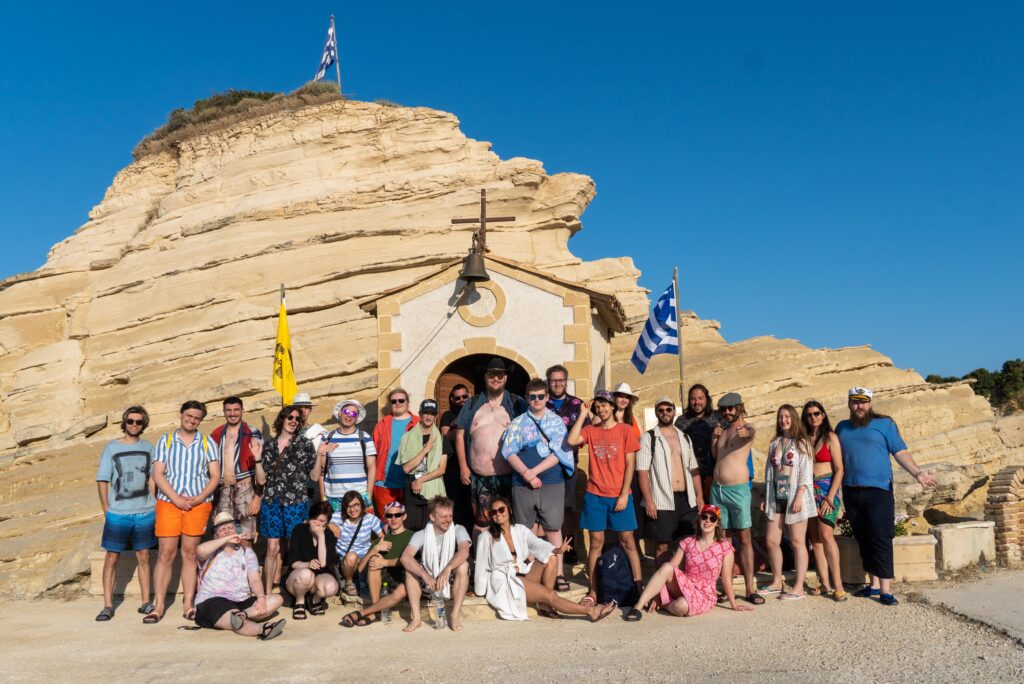
Goodbye
Finally, the competition of the gods and goddesses comes to an end; the champions have earned their place in Elysium. Ras and the game masters are pleased with the stories the players have shaped. The players share with each other the adventures they experienced.
Friendships have formed between the rounds of play. Many participants have already made plans to write letters or postcards to each other, to visit or meet again at another Dragon Legion event. The grand farewell took place at Vienna Airport, the transfer point for almost all participants, where they went their separate ways back to their home countries. While at the beginning one might have been very conscious of their own accent and speaking English might have felt uncomfortable, now it was almost difficult to return to their native language.
Dragon Legion has achieved its goals: connecting people across borders, encouraging exchange, and promoting languages — all wrapped up in play and travel. On their website, you can already apply for the next events, where prior experience in role-playing is not always necessary.
Text, translation and images: Stefan Kranz
